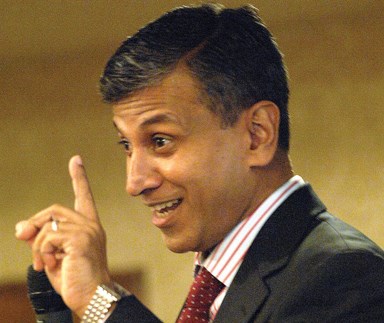An editor at the Vancouver Sun issued a provocative call Friday for tackling a "three-headed monster" of impediments to economic prosperity in British Columbia.
Fazil Mihlar, speaking at a luncheon hosted by Initiatives Prince George, said the province suffers from what he calls "affluenza," irrationality and BANANA, an acronym for Build Absolutely Nothing Anywhere Near Anybody.
On the last of the three, Mihlar said it's a problem that's particularly endemic in the Lower Mainland but has a spillover effect to the rest of the province.
Opposition to major industrial projects planned for northern communities is often based in Metro Vancouver, he said, but because that's where the votes are, resistance there can have a big influence over politicians.
Mihlar argued many people in the Lower Mainland fail to realize how important resource extraction in northern B.C. is to their own well being, noting that some 70 per cent of the province's revenue comes from the northern region.
As for "affluenza," Mihlar said the relative affluence many British Columbians enjoy is preventing them from taking the kinds of risks necessary for progress and will hurt an already struggling economy in the long-run.
The trouble is exacerbated by irrationality, he said, as people are often irrational and "downright emotional."
"That means a picture of a couple of seals with a bit of oil on them is enough to dissuade people from allowing tankers along our coast," Mihlar said.
The repercussions can add up to billions of dollars in lost income.
Preventing a pipeline from the Alberta oilsands to the west coast means producers will remain dependent on selling into the U.S. market at a deep discount to West Texas Intermediate, he said, adding up to $300 billion in foregone revenue over 10 years.
Similarly, Mihlar said scrapping Taseko's New Prosperity Mine near Williams Lake means a loss of $4.5 billion in economic impact over its lifetime. Mining projects occupy just 0.5 per cent of the province's land base, he noted, compared to 14 per cent set aside in parks.
Offshore drilling for oil and gas is allowed off Canada's east coast but not off its west coast. Even wind energy, adding up to $2.75 billion in project investment, is facing resistance, Milhar said.
He said many of the same people who demand well-paying jobs often say no to resource-based employment that can pull down six-figure salaries. They're the same kinds of jobs that support good health care and small class sizes, he continued.
"Unless we can treat this three-headed monster with serious antibiotics," Mihlar said the province is in major economic trouble, and northern British Columbians can do something about it.
"Your message should be heard loudly and clearly in Vancouver," Mihlar said, going so far as to ask why a rally at the Vancouver Art Gallery has never been held in support of the projects proposed for northern B.C. that have generated so much opposition.
He also suggested a more concerted and long-term effort to get the message out, noting for example that mining week lasts just seven days while campaigns against mines go on year round.
He said there have been "no consistent efforts" and "no good models" developed so far for making people aware of how important resource based projects are to British Columbians' economic well-being.



